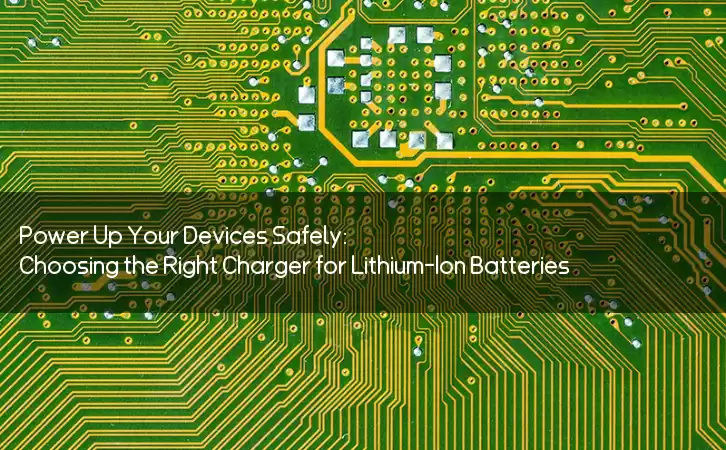Information Center
Power Up Your Devices Safely: Choosing the Right Charger for Lithium-Ion Batteries
Published:2023-07-15 10:35:00 Author:Green WCND Views:23Lithium-ion batteries have become increasingly popular in the modern world due to their high energy density, low self-discharge, and ability to hold a charge for a longer time. These batteries, commonly used in smartphones, laptops, electric vehicles, and drones, require a specific type of charger to work correctly and avoid damage.

The most common type of lithium-ion battery charger is the constant current-constant voltage (CC-CV) charger. This charger has two stages, the first stage being the constant current stage, where the device charges the battery with a constant flow of electricity until the voltage reaches a particular level. In the second stage, the charger switches to the constant voltage stage, where it provides a steady voltage until the battery is fully charged.

Another type of lithium-ion battery charger is the pulse charging system, which works by providing a brief pulse of current to the battery, then allowing it to rest for a short period. This type of charger is less common than CC-CV chargers and is generally used for high-performance applications such as electric vehicles and battery backup systems.
It is essential to use the correct charger for your lithium-ion battery to avoid damaging the cells and reducing their lifespan. Using a charger that provides too much current or voltage can cause overheating, swelling, or even a fire hazard. Conversely, using a charger that does not provide enough current or voltage may result in a slow charging process and reduced battery capacity.
When choosing a charger for your lithium-ion battery, make sure to check the specifications of your device and select a charging system that matches those specifications. Most lithium-ion batteries have a label or an engraving on the device that indicates the voltage and capacity of the battery. You can use this information to select a charger that is compatible with your battery.
In conclusion, lithium-ion batteries have become an essential part of our lives, powering our smartphones, laptops, and electric vehicles. It is crucial to choose the right charger for your battery to ensure that it charges correctly and lasts as long as possible. Remember to check the specifications of your device and choose a charger that matches those specifications to avoid damaging your battery. With the right charger, your lithium-ion battery will provide reliable power for years to come.
Battery testers of different voltages exhibit significant differences in several aspects, and a 12V battery tester is primarily used for testing a range of spec···
Battery Testers (battery capacity testers/battery detectors) indeed come in various types tailored for different products. These different types of battery test···
The advantages and disadvantages of battery testers are as follows:AdvantagesFlexibility:Battery testers can accommodate various testing modes, making them adap···
Understanding the testing accuracy of golf cart battery testers is crucial for ensuring the precision of test results. Here are some methods to assess the testi···





